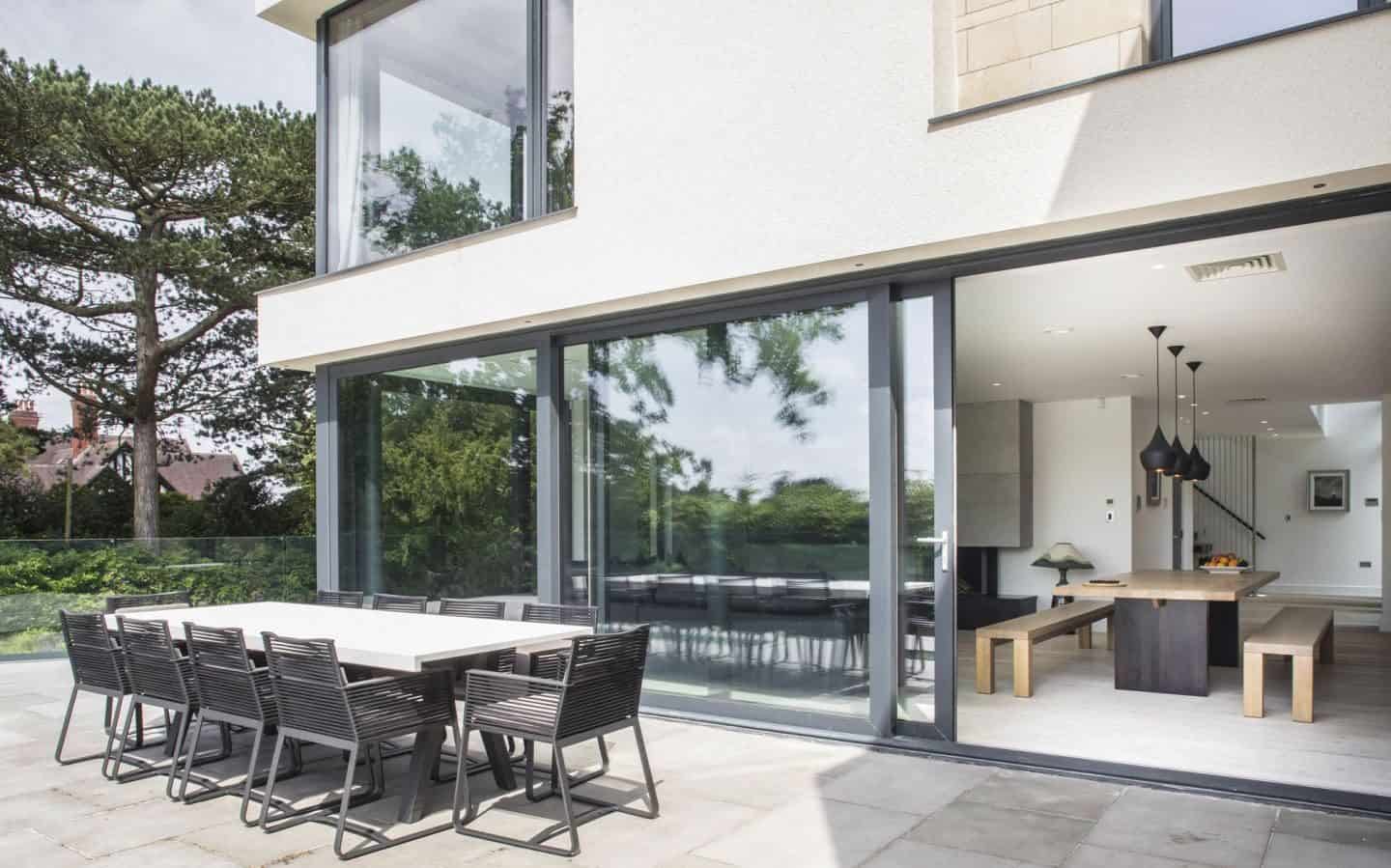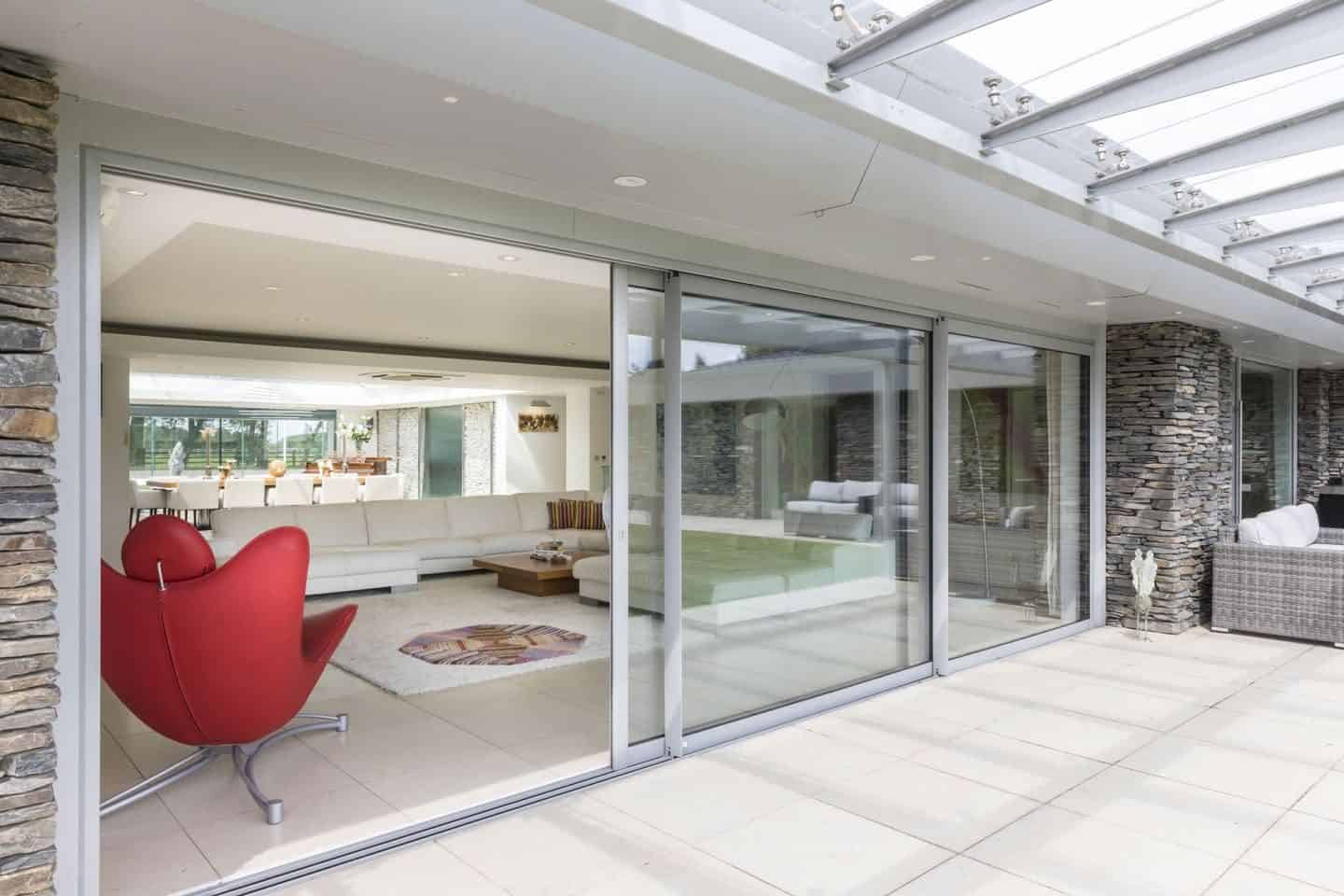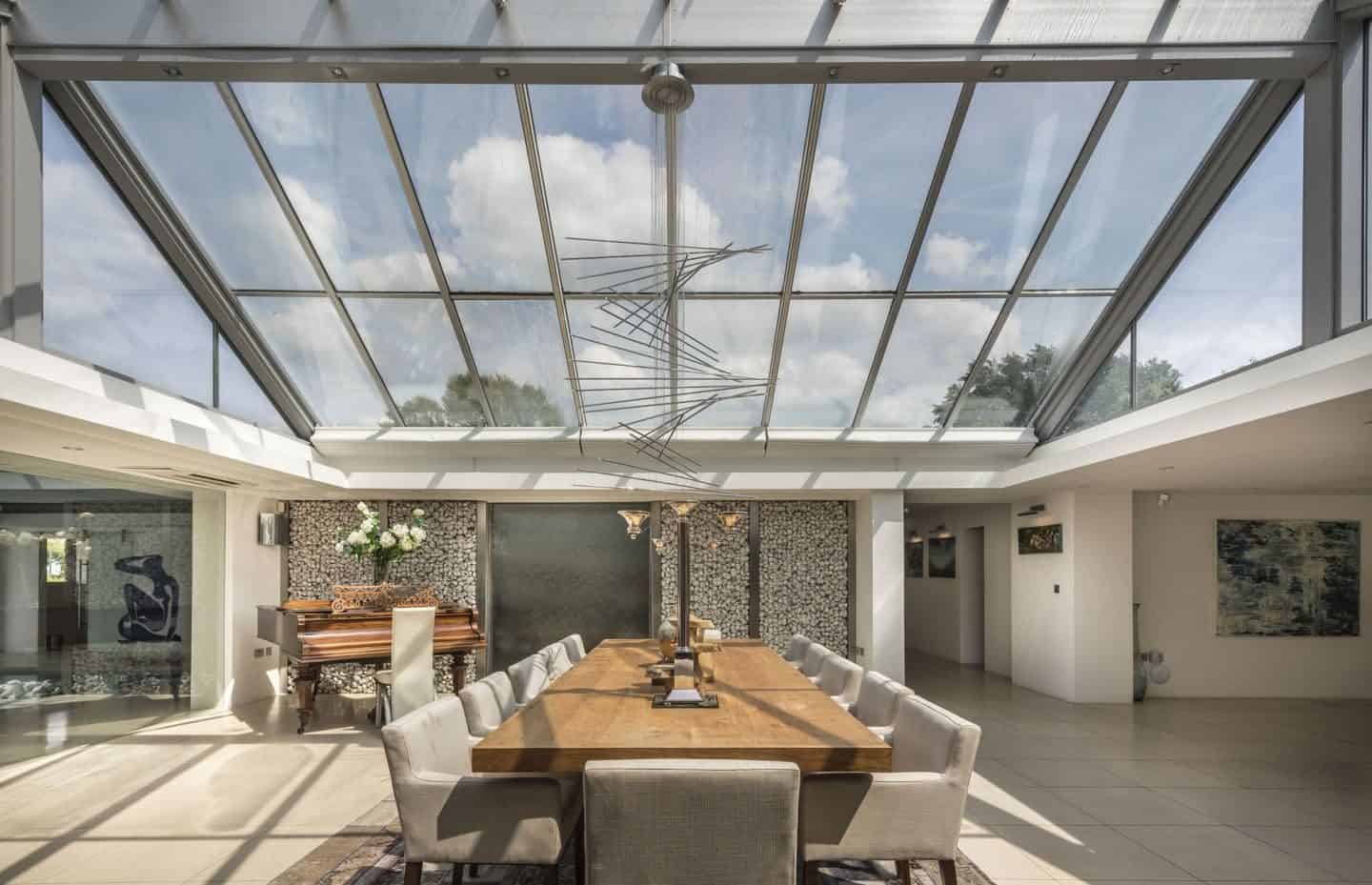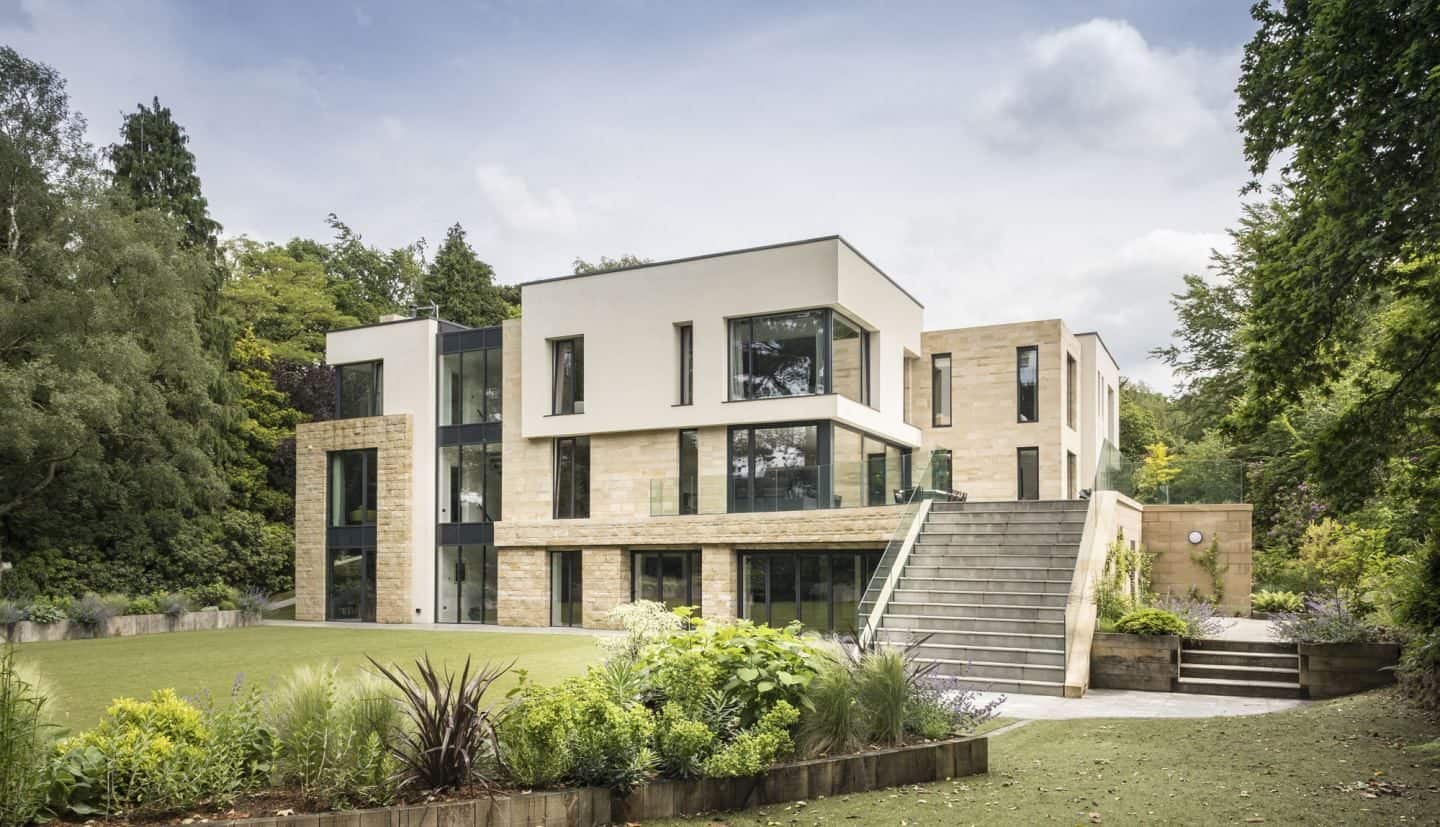
Today’s post is all about speciality glass. This wasn’t intentional but I feel like I’m now writing a series of posts about extending your home. I started with my own plans for our loft conversion, where I talked about the importance of ensuring we get lots of natural light into the space to compensate for the lack of it in the rest of our home. This mainly focused in choosing the right windows.
I then went on to write a post about other glazed extensions and I explored the difference between conservatories, garden rooms and orangeries and the benefits that each option can bring to your home.
A New Build Extension
What really ties these two posts together though is the need for increasing our living space as well as increasing the levels of natural light in our homes. And we can achieve both of these things by extending in some way, whether that be a loft conversion, a side or rear extension or even a garage conversion.
What seems to be to be integral to the success of these projects is choosing the correct glazing. And to be honest, it’s not really something I’ve ever given much thought to. But now I’m really looking into our loft conversion I’ve become aware that this is definitely something that requires some research.

“We all want our homes to have lots of natural light, it has become a key consideration for homeowners, however the up-keep which comes along with lots of glass can be a make or break decision.”
Julia Berkin, Brand and marketing communications manager, pilkington

Self-Cleaning Glass
I suppose one of the things that most worries people when it comes to building an extension that features large expanses of glass is the cleaning and maintenance of that glass. Access can also be a bit of an issue because if the glass is hard to reach, it will be harder to clean. Take the modern glass box extension for example. Depending on the size of the extension, that can be a lot of glass, and for many people, getting up on the roof to keep that clean can be a rather off putting thought.
I recall having heard about self-cleaning glass, which at the time I thought was really revolutionary. Pilkington have a range of self-cleaning glass called Pilkington Activ™ which has been designed to overcome these challenges. Basically a special hydrophilic coating is applied to the glass which uses natural sunlight to accelerate the break down of organic dirt and helps clear the dirt away by encouraging rain to sheet down the glass. So the dirt washes off every time it rains. It also dries faster, leaving the glass clean and with less streaks. Great news for your glass box extension or the roof lantern of your new orangery.
Temperature Regulating Glass
Another potential worry that people may have when it comes to extensions that feature large proportions of glass is temperature control. Will their new space be too hot in summer and too cold in winter? How will they manage to regulate the temperature? This is a very concern. After all you don’t want to fork out all that money on your new space and only be able to use it in the milder spring and autumn months.
The Pilkington Activ™ range also includes options which combine solar-control properties and can be paired with a highly energy-efficient inner pane of glass to prevent heat escaping. You can therefore sit back and enjoy a comfortable environment all year round safe in the knowledge that your speciality glass is doing its job.
But there are other glass options when it comes to temperature control. For example, Pilkington Suncool™ One combines the benefits of both solar-control and low-emissivity glass. It is especially popular in modern buildings with large areas of glazing or for bi-fold doors as it to achieve all-year round comfort.
If lower temperatures and wintry conditions are the concern, choosing the right kind of insulation becomes essential. In this case, installing Pilkington Optitherm™ S1 Plus can stop excessive heat loss and help to reduce your energy bills. It can be toughened or laminated to create bespoke glazing for a wide range of applications.
Restoring a Listed Building
If it isn’t an extension that you’re planning but perhaps you’re renovating a neglected period property, things can be a little more complicated. If a property is listed for example, planners will probably insist that you replace like with like when it comes to older windows or sash windows. In the past, this has made it difficult for homeowners to install double glazing or energy efficient glazing. They often found themselves having to choose between aesthetics, sound-proofing and performance.
But now there is a glass solution. Pilkington Spacia™ is an ultra-thin vacuum glazing. It is light weight and just 6.2mm thick, making it perfect for use in sash windows. It is also highly energy-efficient, and also has the added benefit of reducing external noise. Internal condensation levels will be vastly reduced when compared to single glazing.
By using Pilkington Spacia™ in your restoration project you can achieve an authentic, period look and finish without sacrificing performance levels. You can carrying out works that comply with building regulations and harness the benefits of modern, energy-efficient glazing technology whilst looking amazing too.
So as you can see there is certainly a lot to consider. You could opt for standard glass of course but, with all these benefits on offer from speciality glass, it makes sense to think about your personal circumstances and what kind of glass would work the hardest for you to ensure that your home renovation project is the best it can be.
Now if only there was a speciality glass that would clean itself inside as well. My window cleaner (I don’t have self-cleaning glass sadly) might stop chastising me for not cleaning the windows inside.

